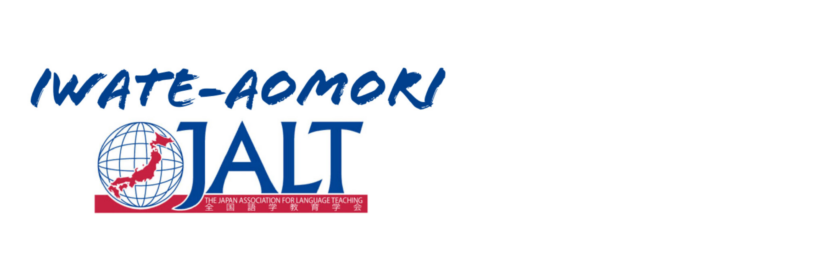Here is the listing for our October event. It’s a bit early to be posting here, but I’m hoping it will give you time to make arrangements to attend the talk.
Location: AIINA, ROOM 602
Date October 26, 2014
Time: From 1:30pm – 4:30pm(13:30-16:00)
Cost: Free for JALT members. ¥1000 for non-members. ¥500
for full-time students.
Contact: iwatejalt@hotmail.com phone/fax: 019-663-3132
Content-focused language teaching approaches such as Content-Based Instruction (CBI) and Content and Language Integrated Learning (CLIL) continue to gain both recognition and credibility. In this workshop, participants will be introduced to both the theory and practice of such approaches, with special emphasis on the affective learning domain. After looking at the various benefits and challenges of a content-focuses approach, the presenter will introduce an example of a theme-based CBI program that is currently being used in a tertiary-level English program for management course students in Japan. The aim here is to highlight for participants each step in the instructional design process as well as some of the various considerations at both the macro (curriculum) and micro (task) levels. Participants will then be challenged to consider the motivational merits of implementing a content-focused approach in their own teaching contexts, and be presented with a list of suggested readings for further exploration.
Bio: Brent A. Jones has taught ESL/EFL in Hawaii and Japan since 1987, and has been involved in teacher training since 2002. He has worked in corporate training programs at Sony, Mitsui Trading, Hitachi Shipbuilding, Nestle, and Sumitomo Chemicals. He was formerly the coordinator of the Business English Program at Kobe Gakuin University, and is currently the Director of Language Programs for both the Management Course and Study Abroad Course at Konan University, Hirao School of Management. His major research interests are L2 learning motivation, extensive reading, curriculum development, instructional design, content-focused approaches to language instruction and creativity.

